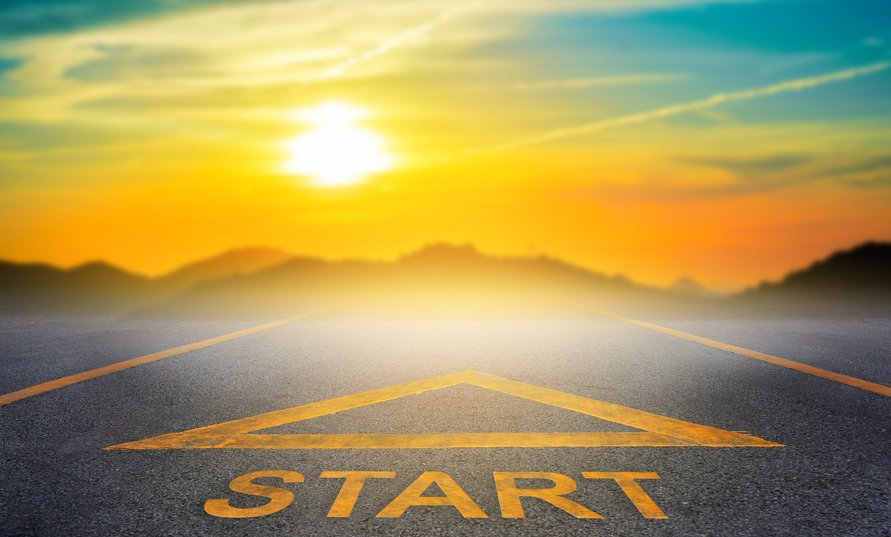Matching coaches with clients, the next evolution in Internal Coaching by Simon Dennis (Part 1)
If you recognize your strengths as a coach,
If you know where you are at your best in a specific area/function, and
If you’re aware of where your coaching produces substantially better results – it’s a strong platform, especially for an internal coach matching model.
However, how this platform is used to inform coach matching appears to be evolving for internal coaching functions.
In the external market coachees find their coaches through several different methods – recommendations, internet profiles, even as part of a learning experience. They form an initial assessment of a match, "does that look/feel like somebody I can work with?" and take it from there. The option for a taster or ‘chemistry’ meeting is there to confirm initial assessment.
An initial idea for internal coaching models was to avoid selecting coaches that knew too much about the topic/area under discussion, partly to encourage open questions and few assumptions (‘content free’ or ‘solution focused’ coaching), but also to remove any conflict of interest – a common challenge in internal coaching. This often meant coach matching was ‘invisible’ to the coachee and, apart from a simple coach profile provided once the initial match was made, the coachee was encouraged to use the chemistry meeting to work out if the match would ‘work’.
Internally, we're now reforming our company coaching community to suit the changing needs of the business and that's really progressing well. I'm really impressed with how that's coming on and I've been looking into what I see happening in the market to help shape the way forward and report on this in the first of my two part series, and explore in more detail coach matching in the second part of this series.
What’s changed?
Interestingly, as we started to experience the effects and impact of COVID-19, I saw coaches position themselves very much as the answer to everything. Whether it's your well-being challenges, whether it's your working from home challenges, or whether it's your lifestyle challenges. Coaches I saw were very much of the opinion, "We're coaches. We can help you deal with any challenge you've got."
Whilst I agree to some extent that’s true it got me thinking about an individual coach’s strengths and focus:
Thinking about where and when I am at my best as a coach,
Achieving my best outcomes for my coachees, and how
Focusing on those strengths might potentially steer some coachees away but could also lead to better outcomes in the long run.
I noticed when I did some work with Manchester Metropolitan University that as part of their introduction the coaches began to differentiate themselves by focusing on their strengths and unique styles, encouraging the coachee to effectively own the matching process. Clearly, you try and position your strengths in that dialogue. You don't say, "I'm a really good coach and I can coach on any topic you like." That's not going to set you apart from the other coaches available.
I also sense there's a growing tendency now within coaching to form this idea of what's unique about your coaching offering, particularly around how you deliver it? I've seen some coaches move to an outdoor model and offering a true sense of space: using the world around us, a back to nature approach, to enhance their coaching offering. Now that clearly will resonate with a certain group of people and that builds your clientele, your coachees.
External coaches are entrepreneurial in how they want to attract their clients. I believe, internally, we need to also be thinking on those lines because as much as we'd like to say, "As soon as there's a coachee it doesn't matter who they are, I can coach them." I think we do need to be trying to match the coachee with the best coach for them and their needs. Particularly, when you've got a pool of internal coaches. It can't just be first come, first served as it might be location that’s a key consideration, but you've still got to get that blend that says, what's going to differentiate the experience for the coachee. What's going to make them want to tell their mates, "This is really worth doing and it was a fantastic experience." I think we have to recognize that.
Recognising useful differentiators as part of the matching process
Within our coach community, we've had a small steering group go through different models and the group that had been looking at matching have really focused on the differentiators. It's been a challenge because I think a lot of coaches would argue, "Well, I don't really have a specialism. I can coach in any area so I don't want to be restricted." They almost see specialism as a restriction when, actually, weirdly, I see specialism as diversification - I see specialism as the opposite. I would say, "Well, actually, if I'm really good at that then the more coaching I do in that space, the happier I'll be because I know I'm good in that space."
We have an interesting blend of behaviours from the coaches. Some of whom are absolutely adamant that a coach can coach on any topic and matching is matter of personality/style. I think that's fine if you are a coach who's putting yourself in the external market, you might not want to restrict your offer to begin with because you can coach on any topic. Or for solution-focused coaches who require no knowledge of the topic at hand because it's all focused on the outcome. But I believe from an internal coaching point of view, where you've got a pool of equally capable coaches and you're saying, "Here's a coachee that has a specific challenge." actually, in the matching process it's helpful to know who your coaches are and who may have been successful with those types of challenges previously.
Acknowledging that this is a real concern of our coachees, then I wonder whether that's going to be, if you like, the next evolution of coaching whereby a business manager may have different coaches dependent upon their need, "I’ve got my coach who helps me with my presentation technique, a different coach who helps me with my business management, and I have another coach who helps me with my personal style.” You can see how these things could all work together.
Whilst we’d like to differentiate ourselves from the widely held sports coach approach, where the experience and unique skills tend to be the deciding factor, I think there is a useful analogy from sports which we can usefully learn and adapt in our organizational work. In sport we are more regularly seeing, specialist coaches – initially in areas like ‘offence’ or ‘defence’ but more often down to the individual role in the team or even the specific skill – goalkeeping coach, forehand coach etc. We see multiple coaches working with the same team or individuals – a specific coach who's going to look at tackling, a specific coach who's going to look at dribbling with the ball, and a specific coach who's going to help you with your shooting, all working alongside a diet coach who’s going to help with eating properly and a physical coach who helps build strength. You end up with all these coaches that together create the greater experience.
I foresee that's where there’s momentum building in coaching. I think though, both internally and externally, as we've lived through COVID-19, how I saw it start was a lot of coaches putting the message out there, "I am all things to all people." As time has moved on, what I've seen is coaches refine their model and refine their offer so that they're offering something unique and specialist. Absolutely, it might restrict your market but I think there's an element that says it makes you a better coach because you're dealing with your strengths and your unique offerings.
What do you think?
What changes in your market, whether as an internal or external coach, is influencing the matching process?
How important is specialism as a coach as our coachees are more sophisticated and educated of what coaching can do for them?
What are your thoughts of a business manager having a team of coaches for their various needs?
To connect with Simon Dennis.
Simon has over 20 years’ experience of service delivery and continuous improvement in a variety of roles and industry sectors. He trained as a coach and coach supervisor and as Head of Coaching at Fujitsu UK & Ireland he established a Coaching Community utilising internal and external coaches to meet the business need for performance improvement and provided a basis for establishing a coaching competency for the organisation.
He has continued as a coaching ambassador for Fujitsu, presenting at conferences and contributing to publications and professional bodies in order to promote the use of coaching for performance and particularly internal coaching as a valid and valued approach.
He is married with 2 daughters and lives in Manchester, North-West England.












